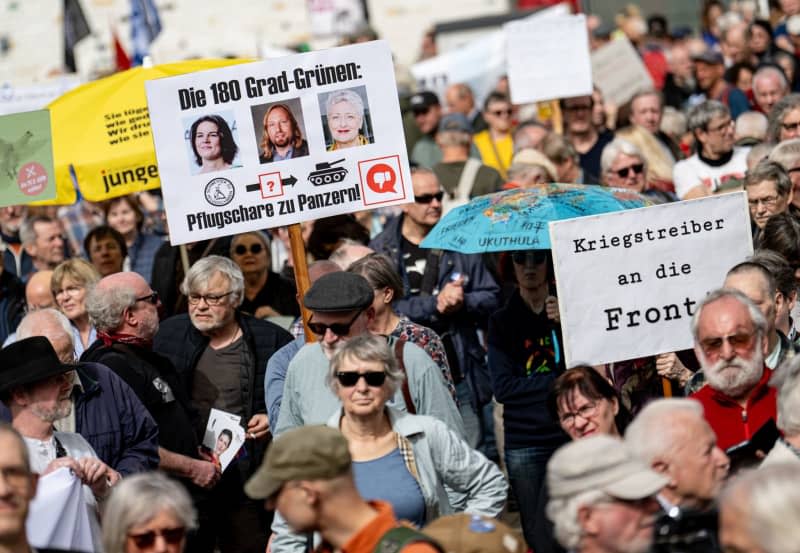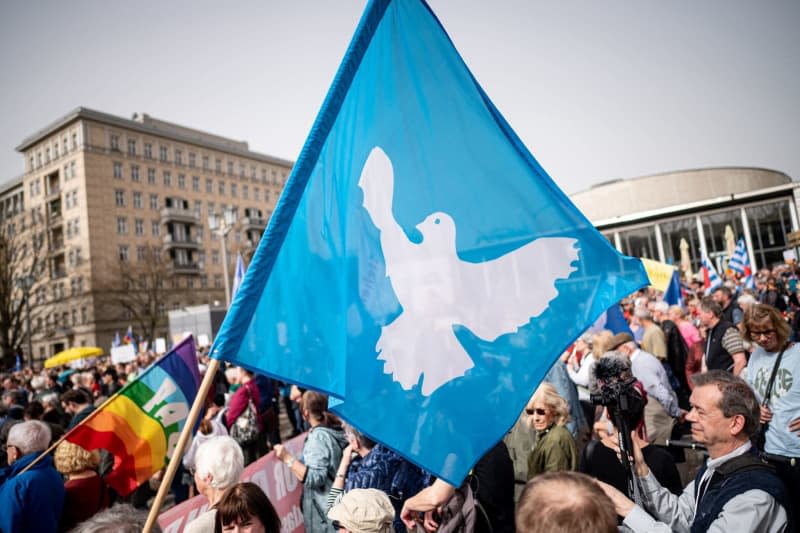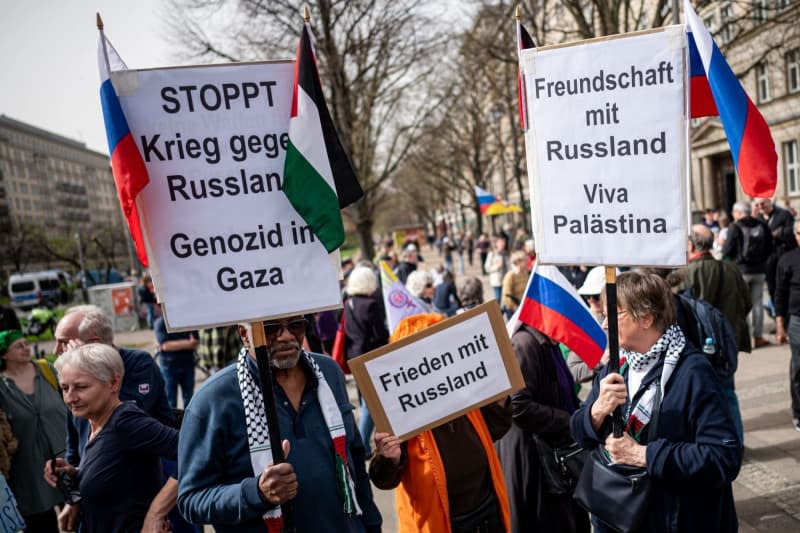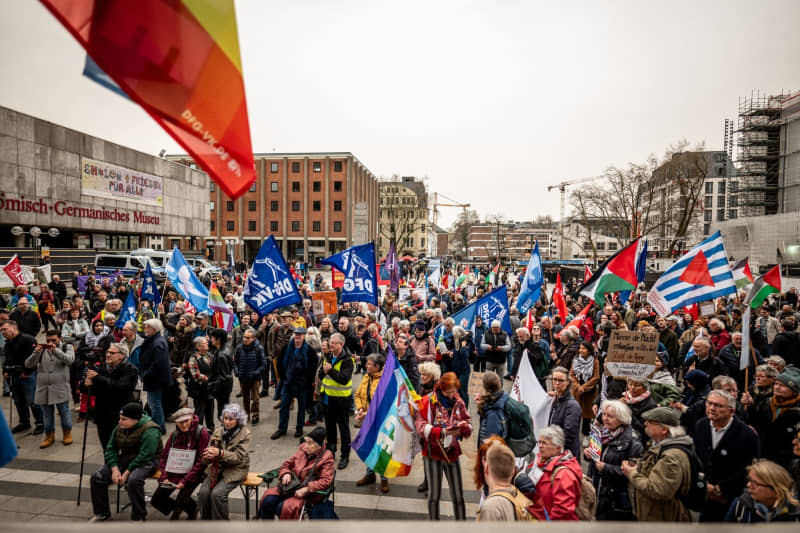Germany's Easter marchers demand end to fighting in Ukraine and Gaza

- Oops!Something went wrong.Please try again later.
Thousands of people across Germany on Saturday joined the country's traditional Easter marches that emerged from last century's peace movement, with marchers this year calling for an end to fighting in Ukraine and the Gaza Strip.
The marches against nuclear weapons and in favour of peace have been held over Easter for more than 60 years. The main day of action is Saturday, with around 70 events scheduled to take place across the country.
According to preliminary figures from the Peace Co-operative Network which organized the marches, more than 10,000 people took to the streets throughout Germany in favour of peace and disarmament on Holy Saturday.
"We are satisfied with the turnout," said network spokesman Kristian Golla. The number was roughly at the same level as last year.
The largest marches were in Berlin with around 3,500 participants, Stuttgart with around 2,000 and Bremen with around 1,000 people. Around 700 people took part in Cologne and 500 in Munich, said Golla.
Some 800 protested in Wiesbaden, according to police.
Marchers called for negotiations and diplomatic solutions to the Ukraine war, started by Russia on February 24, 2022, and fighting in Gaza, as well as an end to weapons deliveries for Kiev and Israel.
Israel launched a military operation in the Palestinian coastal area following the October 7 massacres led by the Palestinian extremist organization Hamas.
Participants in Berlin carried placards with slogans like "Friendship with Russia - Viva Palestine," and "Genocide in Gaza," referring to the high number of civilian deaths caused by Israel's military incursion.
Others criticized the government in Berlin, and people waved Russian and Palestinian flags.
In light of the marches and their appeal to stop weapons deliveries, several high-ranking politicians from both the government and the opposition have come forward to stress the importance of continued military support for Ukraine.
Germany is one of Kiev's main backers in its defence against the full-scale Russian invasion, only second to the United States.
"We all long for a more peaceful world," German Chancellor Olaf Scholz said in a video message published on Saturday. But peace without freedom means oppression, and there is no peace without justice, he added. "That is why we are supporting Ukraine in its fight for a just peace - for as long as it is necessary. We are also doing this for ourselves, for our security."
Vice-Chancellor Robert Habeck also released a video message: "We are not supporting Ukraine out of solidarity or sympathy alone, but in the interests of Germany and Europe."
Russian President Vladimir Putin was looking to destroy the unification and unity of Europe, Habeck said. If the Russian leader succeeds with his war in Ukraine, he will continue, he added. "We long for peace. Yes. But the honest, bitter answer is: There will probably not be a quick, good end [to the war], even if we wish otherwise."
German Foreign Minister Annalena Baerbock warned those participating in the country's traditional Easter peace marches that the threat that a Russian victory in Ukraine poses for the rest of Europe could not be ignored. "If Ukraine can no longer defend itself because we are not supplying it with enough weapons, Putin's troops will be on the Ukrainian-Polish border tomorrow - just an eight-hour drive from Berlin. Ukraine also secures our peace."
The leader of Germany's main opposition CDU/CSU bloc, Friedrich Merz, stressed that demonstrating for peace was anything but reprehensible.
"We all want peace and, above all, freedom for our country and for the whole of Europe. But we still need to talk about the conditions for lasting peace, and peacefulness alone is not a sufficient answer," the leader of Germany's main conservative party wrote in his weekly email to his supporters.
Peace could reign immediately if Putin were to silence the weapons, Merz said. "It would therefore be highly desirable for the Easter marchers this year to address Putin and his regime in Moscow in particular and call on him to end the war of aggression against Ukraine immediately."
The Easter Marches emerged from last century's pan-European peace movement calling for nuclear disarmament and protesting the arms race, with the first Easter march held in Britain in 1958.
This year, marchers in Germany are also demanding a more fundamental rejection of the logic of war and militarization.




